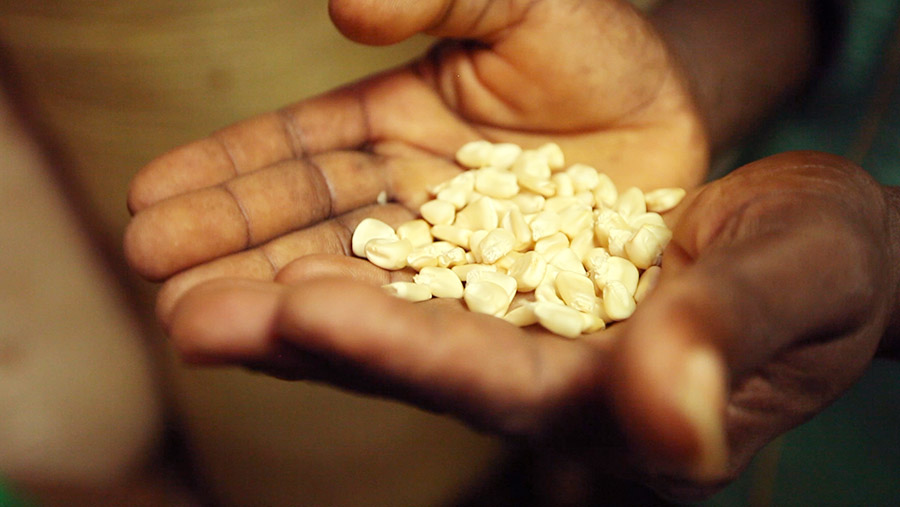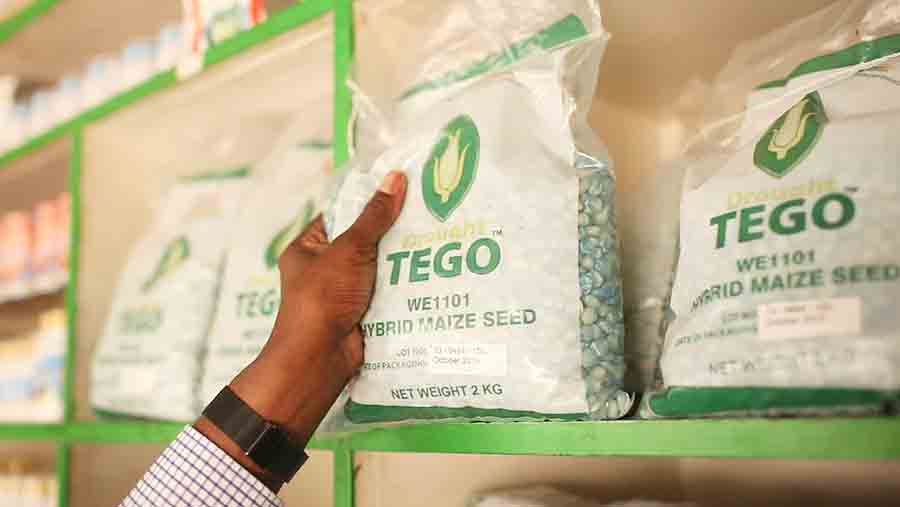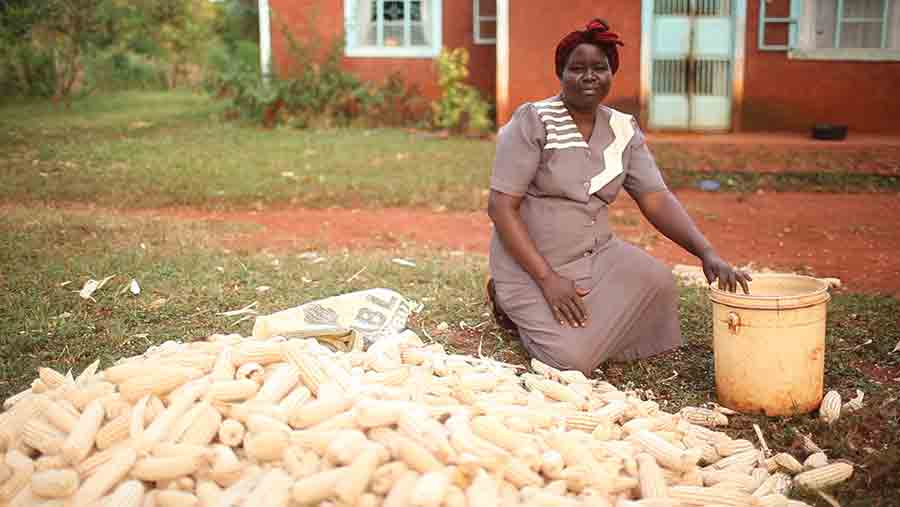Interview: Monsanto boss on sustainable maize for Africa
Mark Edge heads Monsanto’s partnership in a water-efficient maize project that aims to help farmers in Africa live sustainably. Farmers Weekly caught up with him on a recent trip to London.
What is your brief at Monsanto?
I represent Monsanto in a public/private partnership called the Water Efficient Maize for Africa (WEMA) partnership, which began in 2008.

The WEMA programme is improving food security by focusing on white maize, a dietary staple across sub-Saharan Africa
The Bill & Melinda Gates Foundation, the Howard G Buffett Foundation and USAID fund it. Our aim is to develop drought-tolerant maize for smallholder farmers in Africa to reduce crop failure and alleviate hunger and poverty.
See also: Bayer and Monsanto join forces in $66bn deal
What is Monsanto’s role in the project?
Monsanto has donated elite genetics, plus two biotech traits – an insect-resistant trait and a drought-resistant trait – and made them available royalty-free.
Therefore, smallholder farmers can access this new technology without having to pay extra. It doesn’t mean that the seed is free. It means seed companies can access this technology, license it and make it available to farmers without having to pay Monsanto anything.
How many hybrids have been introduced and how have farmers found them?
It is a concerted effort to help seed companies deliver quality hybrid seed to smallholder farmers for maize in Africa. We are putting it into the marketplace through multiple seed companies under a brand called DroughtTEGO.
We have released more than 70 hybrids to 250,000 farmers across five African countries. Farmers who have used them have seen a doubling of their yields, compared with the national average.
What advantages does hybrid maize have over conventional varieties?
Average yields in Africa now are only about 1.5t/ha, which is similar to what my grandfather was getting growing conventional, open-pollinated varieties in Iowa in the 1930s.
Now, the average yield in the USA is more than 10t/ha. This is not just because of hybrids, but because of the system – agronomic practices and biotechnology.
The potential is there in Africa. I have seen fields that will yield 7-10t/ha. But it takes a whole system to be able to deliver that. Seed is just one piece of the puzzle.
What is the perception of Monsanto like in Africa?
My experience is that people are very open-minded. In Africa, 70% to 80% of the population is still farming. A high percentage of people understand what it takes to grow a crop and know the challenges they face.
They are very pragmatic and realistic about needing improvements. If you have ever spent a day out in the hot sun weeding, it doesn’t take you long to realise it’s not a lot of fun. It’s not very productive.
I find it’s easier in Africa to have that conversation. When it comes to the GMO debate, they are extremely nervous and afraid because of all the misinformation, which has mostly been coming from Europe.
Has the WEMA project released any biotech maize products yet?
No. To date, the WEMA project has released only conventional products. There are biotech traits in the pipeline for the future, including the drought-tolerant and insect-protective traits we have in the USA. But they have not been released yet. They are purely conventional lines, so far.
Is the drought-tolerant trait being trialled in Africa?
Yes, it is. The trials in Africa are showing better results than in the USA. We are seeing about a 5% yield advantage and there are huge water savings. We have submitted an application for its approval in South Africa. But it’s a long road to be able to get this from idea into the farmer’s hands.

Drought TEGO maize seed is available from local seed shops so smallholder farmers can access modern, hybrid seed, specifically bred for local conditions
Can drought-tolerant varieties solve food security problems in Africa?
Farmers want hope and they want to reduce the possibility of crop failure. Drought-tolerant varieties do this. It doesn’t mean that you can make a cactus that is going to be able to grow no matter what.
In a drought situation, the drought plant will maybe allow your crop to live for an extra two weeks, if you don’t get rain.
If the conventional plant dies in week 15 of the growing season and your plant lives until week 16 when the rain comes, suddenly you see a huge difference in yield – you get something rather than nothing.
How critical is this whole project in allowing Africa to be more self-sufficient in food?
I believe it is critical. It’s not going to change the world overnight, but it’s a step in the right direction.
It is creating a catalyst to help drive technology and innovation in agriculture, which is what Africa needs.
One technology will not solve all the problems. It’s about an attitude and an understanding of investing and delivering value to farmers so that they can gradually make improvements.
We are just at the beginning of this opportunity in Africa, creating a path for growth.
What is the vision for agriculture in Africa by 2030?
We want African farmers to move away from vulnerability, which sees them living hand to mouth and season to season.
We must empower smallholder farmers to be making decisions for themselves. It’s all about the development of a dynamic market that engages smallholder farmers to be part of the system.
Hopefully, they will have access to global markets to deliver and bring value back to them. They need resilience in their lives to have enough confidence to take a risk or make changes to enable them to move off this baseline of existence towards a more developed life.

